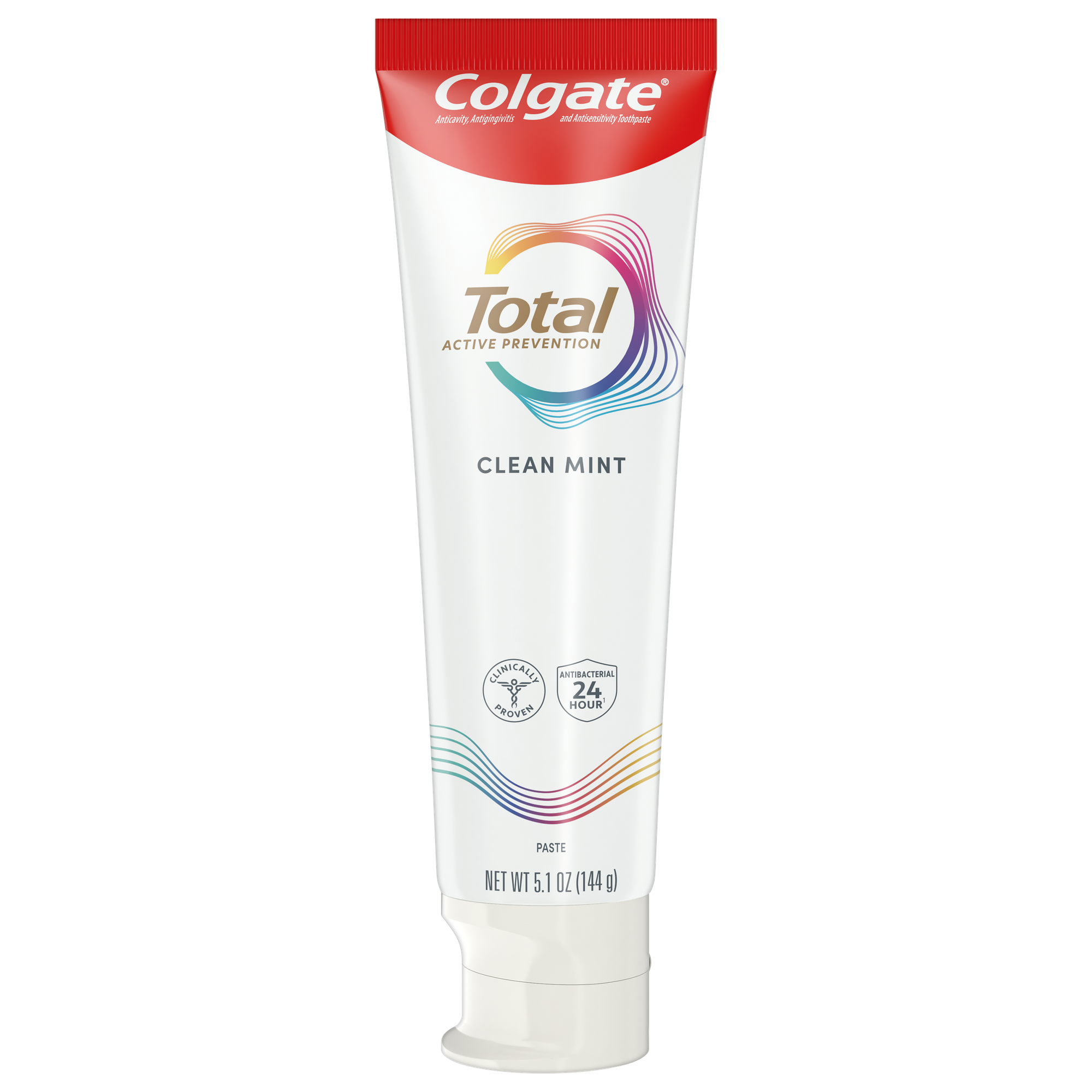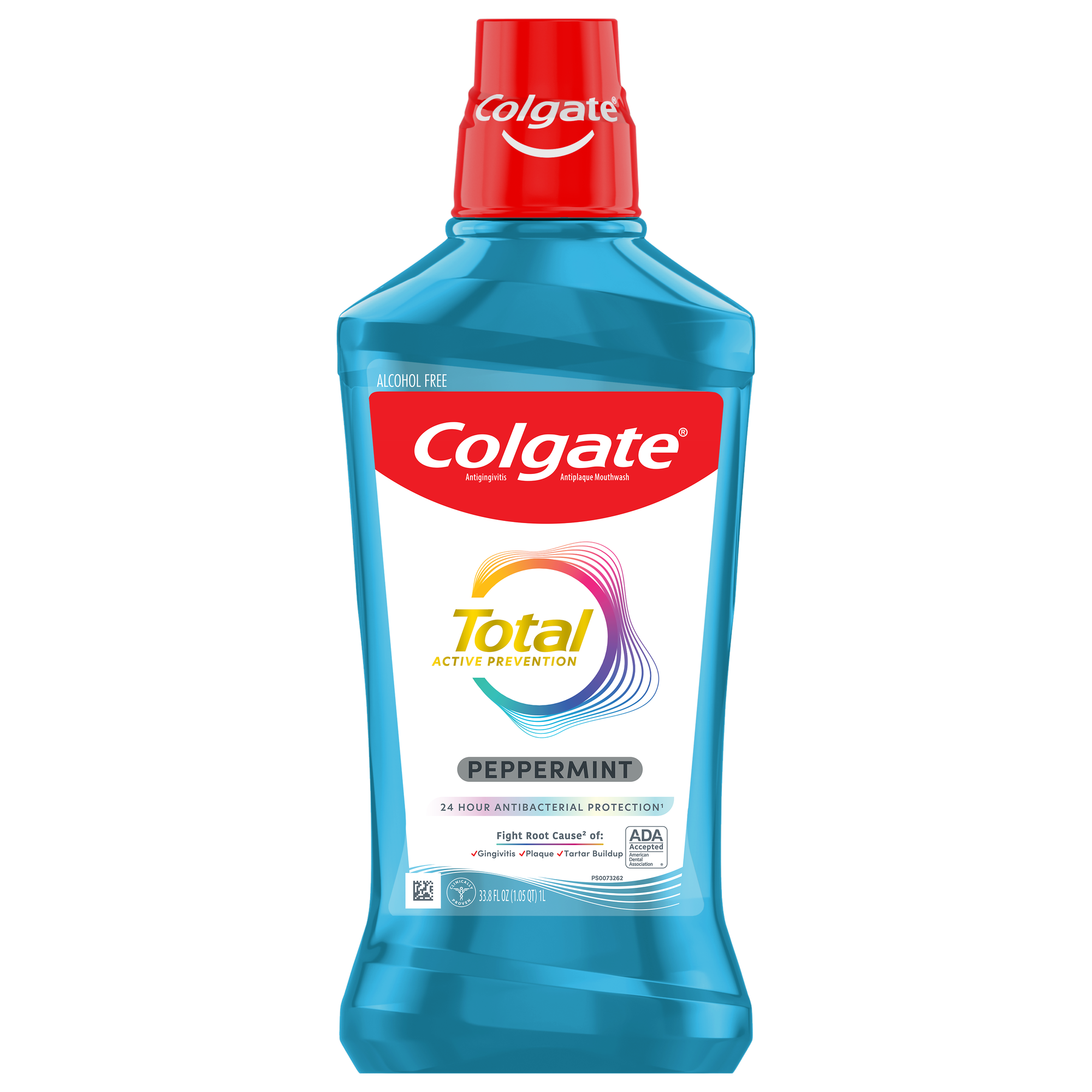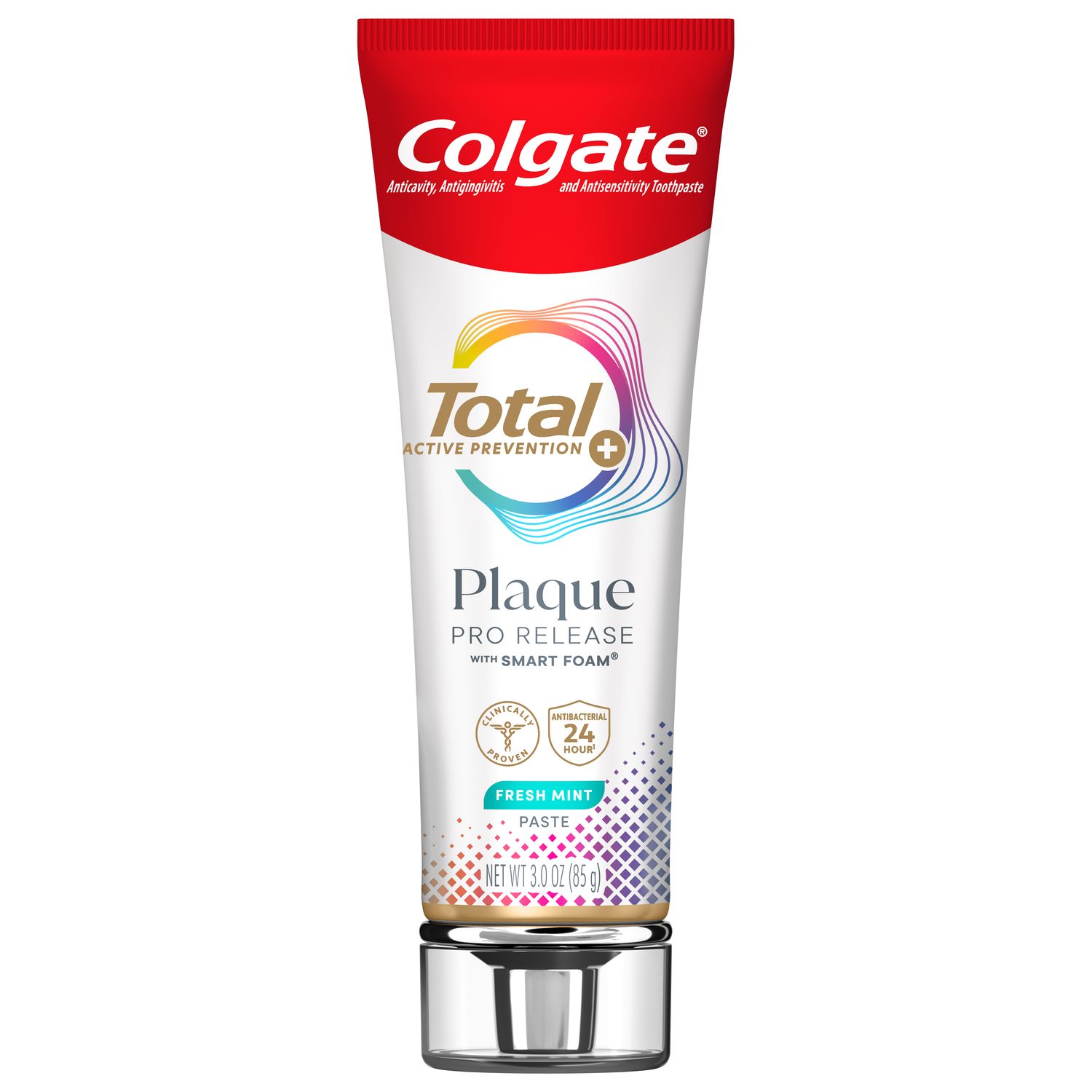
The 99th session of the International Association of Dental Research (IADR) was held in July 2021, where cutting edge original research was presented to the dental community. Colgate partners with global researchers who this year reported on 15 exciting research studies at the international conference. Here we'll recap on the research and provide highlights from some of these studies.
1. Daep et al conducted in vitro testing that showed that a number of Colgate products inactivated human parainfluenza virus. Mouthrinses containing 0.12% chlorhexidine gluconate (Colgate PerioGard), 0.075% cetylpyridinium chloride (CPC; Plax) or 2% hydrogen peroxide (Colgate Optic White MouthWash) were able to neutralize the virus by 99% with 30 seconds of exposure. The two dentifrices tested contained stannous fluoride (Colgate Total SF) and dual zinc plus arginine (Colgate Total DZA). A 99.4% reduction was found with 30 and 120 seconds of exposure to the dual zinc arginine toothpaste, and a 99.98% and 99.99% reduction for the stannous fluoride toothpaste at the same time points, respectively.
2. In other in vitro testing, Jiang et al al also showed significant reductions on influenza viruses (A/H1N1, A/H3N2, and B) with use of hydrogen peroxide mouth rinses at 1.5% and 2% concentrations (Colgate Peroxyl and Colgate Optic White, respectively), with contact times of 1, 2, 4 and 6 minutes. A greater than 99% reduction was found for all time points for the 2% concentration, and at 2, 4 and 6 minutes for the 1.5% concentration while at 1-minute this resulted in a reduction ranging from greater than 95% for A/H1N1 and A/H3N2, and greater than 93% for B.
Similarly, significant reductions were found for 2% and 3% hydrogen peroxide concentrations in Colgate Optic White toothpastes. With the exception of the 1-minute result for Colgate Optic White Toothpaste at a greater than 94% reduction for each virus, a greater than 99% reduction was found for both toothpastes at all time points.
3. Sarma et al conducted an in vitro evaluation of the efficacy of cetylpyridinium chloride (CPC)-containing mouthrinses in inhibiting binding of the SARS-CoV-2 pseudotyped lentivirus. The results showed that these mouthrinses (only CPC,/CPC plus zinc/CPC plus zinc plus fluoride) were effective in reducing the binding of the spike protein to human angiotensin-converting enzyme (ACE2) receptors in vitro and thereby also inhibited the virus from entering cells (ACE2-HEK). Since it is the spike protein in SARS-Cov-2 that enables it to bind to and then enter human host cells, these findings are promising.
4. Other in vitro research investigated the effects of Dual Zinc plus Arginine (DZA) on bacterial endotoxin-induced inflammation products. Carr et al showed that solutions containing DZA lead to decreases in pro-inflammatory markers, specifically tumor necrosis factor alpha, prostaglandin E2 and interleukin 8. It was also concluded that these reductions were due to the zinc compounds contained in the formulation combined with this being maintained when arginine is present.
5. Colgate also supported research on the safety of oral health products. Gronlund et al found that an enzyme whitening toothpaste is both effective and safe for dental enamel. They were testing a novel enzyme whitening toothpaste that uses perhydrolase to catalyze the reaction of hydrogen peroxide and triacetin to generate peracetic acid (PAA). The PAA can then bleach a broad spectrum of both extrinsic and intrinsic stains including tough stains from coffee, tea, wine, soda and tobacco. It was found that sufficient PAA was present to effectively deliver whitening effects. Additionally, confocal microscopy images revealed that the enamel surface morphology remained consistent before and after brushing with the toothpaste, with no significant difference. The enamel surface microhardness was also tested and found to be reduced by slightly greater than 1% (well below the level considered acceptable).
Colgate also supported many other dental posters with innovative research in oral health, from the therapeutic benefits of turmeric for oral health to assessing preferences for new designs of ultra soft toothbrushes. Dental research is key to ensure the continuing progress of dentistry in the 21st century. Here we have looked at contributions at this year's IADR Meeting.
Join us
Get resources, products and helpful information to give your patients a healthier future.
Join us
Get resources, products and helpful information to give your patients a healthier future.













